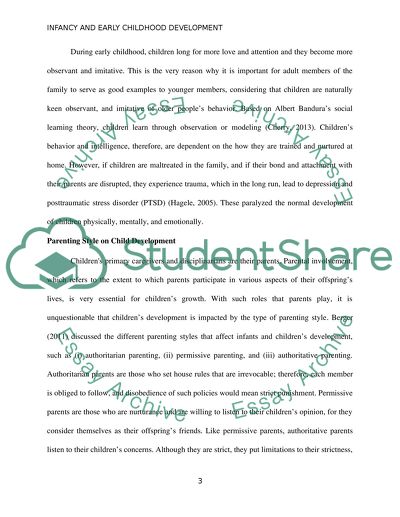Cite this document
(“Infancy and Early Childhood Development Essay Example | Topics and Well Written Essays - 1000 words”, n.d.)
Retrieved de https://studentshare.org/psychology/1495646-infancy-and-early-childhood-development
Retrieved de https://studentshare.org/psychology/1495646-infancy-and-early-childhood-development
(Infancy and Early Childhood Development Essay Example | Topics and Well Written Essays - 1000 Words)
https://studentshare.org/psychology/1495646-infancy-and-early-childhood-development.
https://studentshare.org/psychology/1495646-infancy-and-early-childhood-development.
“Infancy and Early Childhood Development Essay Example | Topics and Well Written Essays - 1000 Words”, n.d. https://studentshare.org/psychology/1495646-infancy-and-early-childhood-development.


